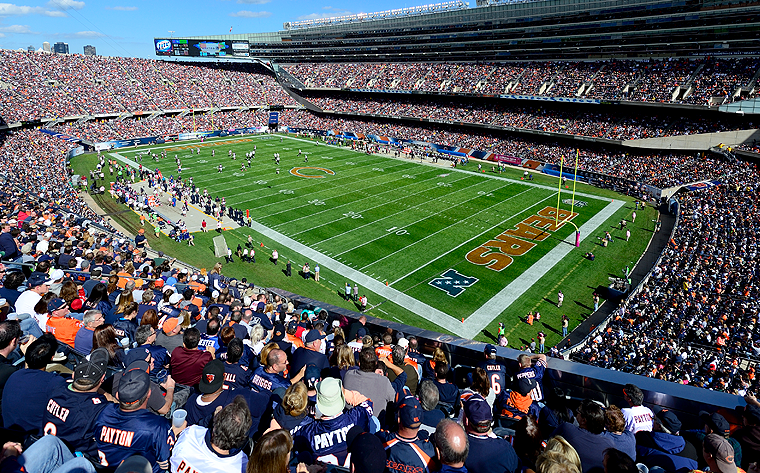
Soldier Field’s event schedule could become much busier in 2020, as MLS’s Chicago Fire is set to break its SeatGeek Stadium lease and possibly return to the facility.
For much of the late 1990’s and early 2000’s, Soldier Field played host to both the Fire and Chicago Bears. The Fire’s initial run there came from 1998-2001, before the stadium closed for renovations. The club returned to Soldier Field during the 2003 season and remained there through 2005, its last season before opening a new stadium (then known as Toyota Park) in suburban Bridgeview.
However, it has been a struggle for the Fire to draw fans over the years, while development around SeatGeek Stadium has not taken off to the extent that Bridgeview officials initially hoped. Those struggles reportedly factored into discussions about the club breaking it lease to return to Soldier Field, and plans are now taking shape.
On Tuesday, the Bridgeview Village Board unanimously agreed to the terms of a buyout of the lease. Under the terms of the agreement, the Fire will pay $10 million upfront and pay off the balance over the next 15 years, along with $5 million annually for the use of the stadium for practices. Technically the deal will not be finalized until the lease is amended, but the agreement is expected to pave the way for the club to return to Soldier Field. From the Des Plaines Valley News:
Next year, the team is expected to play some if not all of its home games in Soldier Field, several sources said….
Mayor Steve Landek called the agreement “a fair deal for everybody.”
“We like to see the Fire unleash its potential out in the whole market. I think it’s good for the Fire. I think it’s good for Bridgeview. Most of all, it relieves any of our angst over the stadium debt.
“Sometimes, we live and die with the success of the Fire. If they have a good year, we have a good year. If they have a bad year, we all are suffering. This, I think, will be a good idea for everybody,” Landek said.
Although the Fire has been out of the facility permanently for more than decade, Soldier Field has still hosted soccer in recent years—including the 2017 MLS All-Star Game, and various CONCACAF Gold Cup matches. Should the Fire return full time, as is expected, it is conceivable that Soldier Field will receive some upgrades before next spring to make it more conducive to hosting the club for the foreseeable future.
It would not be surprising in the least, however, if the Fire use Soldier Field as a stepping stone of sorts to building a soccer-specific stadium in the future. MLS’s model for facilities has evolved considerably over the years, now favoring the use of soccer-specific stadiums tied into larger urban development initiatives rather seeing clubs play as a secondary tenant at NFL stadiums.
To that end, the Michael Reese Hospital site—located south of Soldier Field and McCormick Place—has been linked to the Fire. Chicago Planning and Development Commissioner David Reifman, who is resigning from his post, mentioned a potential Fire stadium during an interview with the Chicago Sun-Times on Monday. However, he labeled it a “long-term idea” and cautioned that any future redevelopment of the site will be complex, likely requiring multiple uses.
The Fire’s long-term status should sort itself out over time. For now, however, Soldier Field is poised to add as many as 17 MLS home matches to its event schedule starting next year and join Atlanta’s Mercedes-Benz Stadium, New England’s Gillette Stadium, Seattle’s CenturyLink Field, and Tennessee’s Nissan Stadium among the facilities playing the role of dual NFL-MLS host in 2020.
Image courtesy Chicago Bears.
This article first appeared in the weekly Football Stadium Digest newsletter. Are you a subscriber? It’s free, and you’ll see features like this before they appear on the Web. Go here to subscribe to the Football Stadium Digest newsletter.
